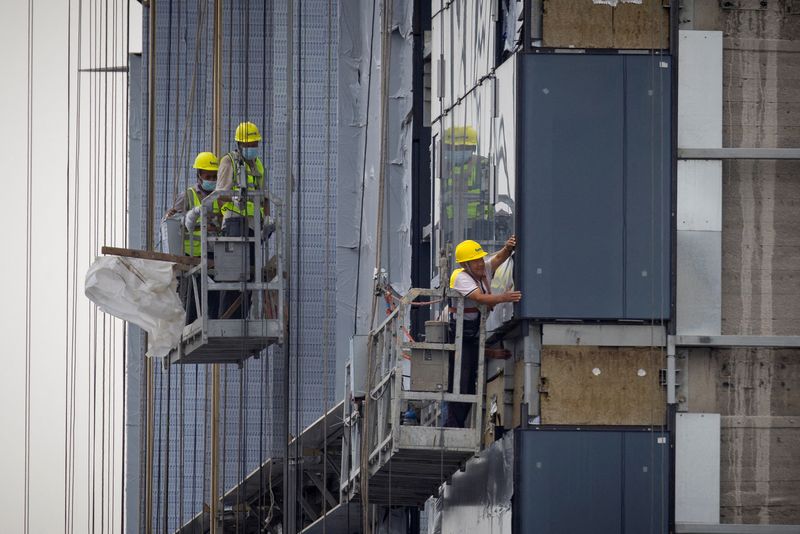Select Language

By Clare Jim
HONG KONG (Reuters) -Shares of Chinese property developers jumped on Thursday, after a report that China is considering a plan for local governments nationwide to buy millions of unsold homes from distressed companies to ease a protracted property crisis.
Hong Kong's Hang Seng Mainland Properties Index firmed as much as 6% in morning trading.
State-backed Sino-Ocean Group surged more than 50% and defaulted private developers CIFI Holdings and Shimao Group jumped more than 30%.
Hong Kong's markets were closed on Wednesday for a public holiday. They have been catching up to gains in mainland property shares since the previous day.
China's CSI 300 Real Estate index climbed over 3% on Thursday, following a 2.2% rise on Wednesday.
Bloomberg News said on Wednesday the State Council is gathering feedback on the preliminary plan from various provinces and government bodies, after a meeting of the ruling Communist Party leaders in late April called for efforts to clear mounting housing inventory.
Local state-owned enterprises would be asked to help purchase unsold homes from distressed developers at steep discounts using loans provided by state banks, according to the report, which added that many of these homes would be converted into affordable housing.
China's property sector slipped into a debt crisis in mid-2021. Since 2022, waves of policy measures have failed to turn around the sector that represents around a fifth of the economy and remains a major drag on consumer spending and confidence.
POLICY RAMP-UP
Over the past years, some local governments have already announced plans to buy unfinished or unsold homes from developers and turn them into social housing.

